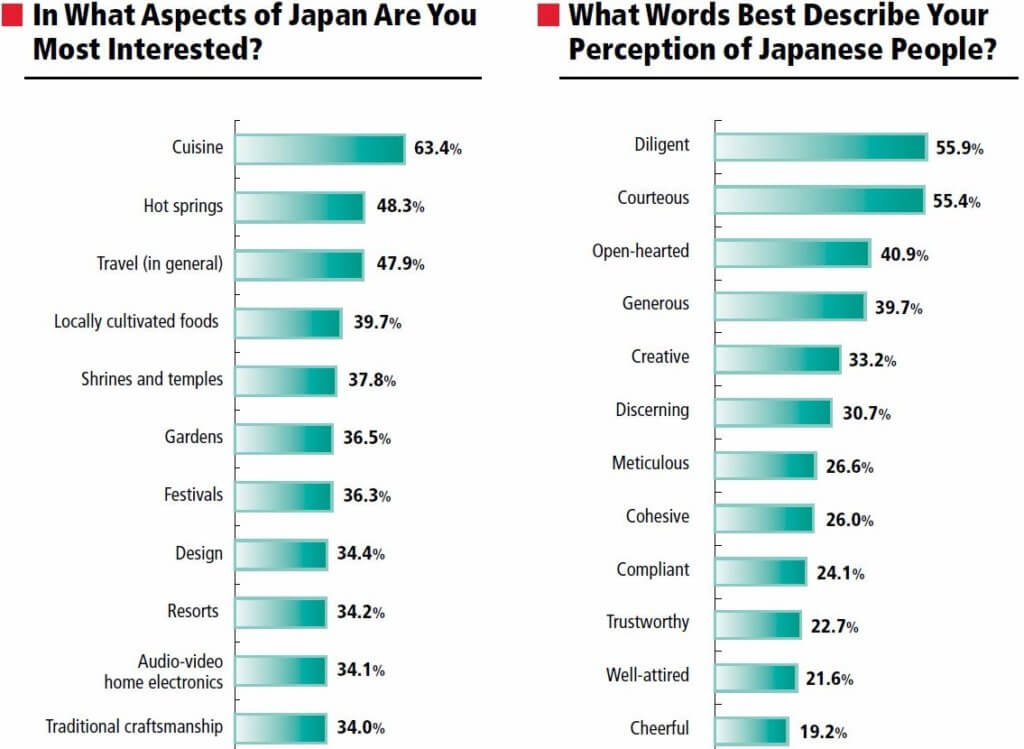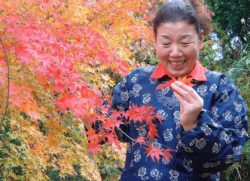Impressions about Japan and Japanese People

Source: Dentsu
Inc. survey of 9,212 valid respondents, ages 20-59, in the Republic of Korea, Taiwan, Hong Kong, Beijing, Shanghai, Thailand, Malaysia, Singapore, India, U.K., France, Germany, Russia, USA, Canada and Australia.
In July of this year, the Dentsu ad agency released the results of its survey on “Japan Branding,” conducted in 16 foreign countries and regions. The topics were segmented into six categories, including “current subculture,” “contents,” “food,” “technology,” “travel and natural scenery” and “traditional culture.” The categories in which the highest interest was shown was “travel and natural scenery” and “food.” While respondents in Asia and Russia showed a high interest in “technology,” those in Europe, the US and Australia showed greater interest in “traditional culture.” The breakdown by category can be shown in the accompanying bar graph. “Japanese food” ranked in the top three among respondents in all 16, and ranked first in 13 of the 16. Dentsu attributes this to the worldwide boom in healthy dining. Broken down on respondents by region, the “hot springs” was ranked tops among Asians, whereas “gardens” and “shrines and temples” were most popular among Europeans and Americans. “Locally cultivated foods” also ranked high, and it is expected that publicity focusing on safety and quality of Japanese foods will result in heightened interest in this topic.
As for “attributes of Japanese people,” the overall high scores for “diligent” and courteous” would relate to respondents' perception that Japanese are honest. “Creative” and “meticulous” scored highly in Southeast Asia, while “cohesive” scored highly in Southeast Asia and Thailand. In addition to these, South Koreans and Russians gave high
ratings to the attribute of “closed” (or “exclusionary”).


